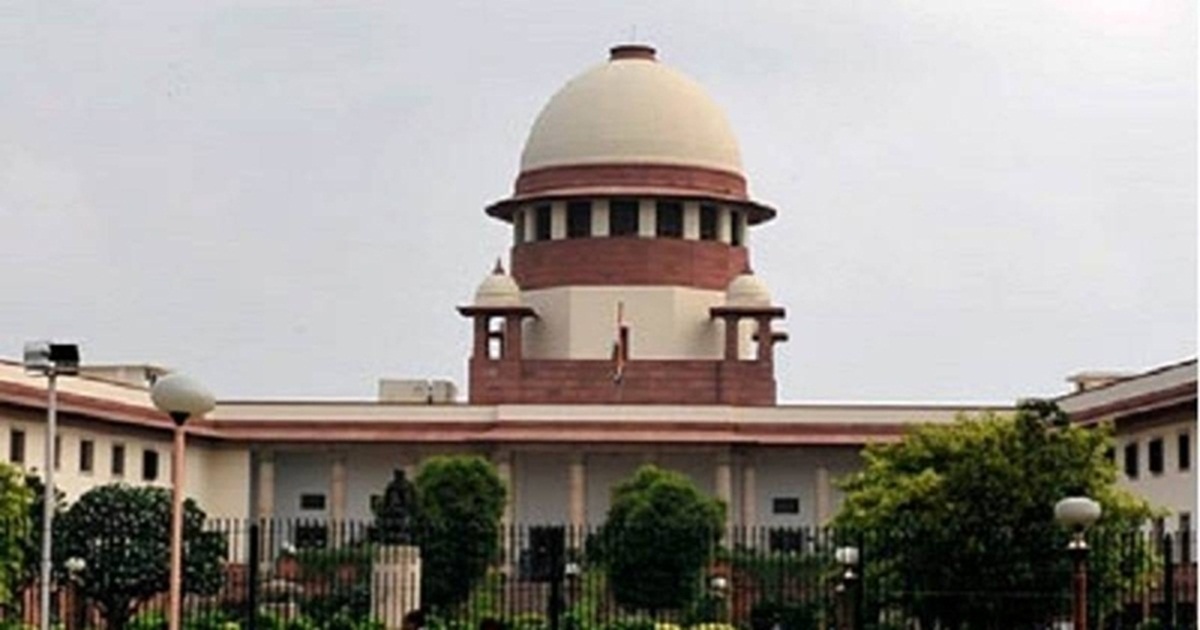New Delhi: In a landmark judgment on Wednesday, the Supreme Court of India ordered the release of a man who had spent 25 years in prison for a crime he committed at the age of 14. The case underscores significant systemic lapses in the country’s juvenile justice framework, as the individual was denied the protections guaranteed to minors under Indian law.
A bench comprising Justices MM Sundresh and Aravind Kumar termed the prolonged incarceration a case of “gross injustice.” The court noted that the accused’s status as a juvenile at the time of the offence had been overlooked by courts at all levels, resulting in a tragic miscarriage of justice. In addition to ordering his immediate release, the Supreme Court directed the Uttarakhand government and the state legal services authority to facilitate his rehabilitation and reintegration into society.
The judgment reaffirmed the judiciary’s critical role in safeguarding the rights of juveniles, calling on courts to go beyond procedural formalities to ensure justice is served. The bench stressed the importance of upholding constitutional principles that prioritize child protection and welfare.
This ruling has broad implications for India’s juvenile justice system, highlighting the need to address systemic oversights and ensure that the law’s foundational principles are upheld in every case. It serves as a reminder to judicial and administrative authorities of their responsibility to protect the rights of minors and prevent similar injustices in the future.








This design is steller! You obviously know how to keep a reader entertained.
Between your wit and your videos, I was almost
moved to start my own blog (well, almost…HaHa!) Fantastic job.
I really enjoyed what you had to say, and more than that, how you presented it.
Too cool!
Here is my website … nordvpn coupons inspiresensation
where can i buy clomiphene pill where buy clomiphene price how to buy cheap clomid tablets can you buy generic clomid prices cheapest clomid pills where can i buy clomiphene how to get clomid without dr prescription
The thoroughness in this break down is noteworthy.
This is the kind of scribble literary works I in fact appreciate.
buy azithromycin online – buy zithromax generic buy generic metronidazole online
buy rybelsus 14mg for sale – rybelsus 14mg uk buy periactin 4mg generic
how to buy domperidone – buy cyclobenzaprine online oral flexeril
buy augmentin sale – atbioinfo buy ampicillin paypal
nexium 20mg generic – https://anexamate.com/ order nexium for sale
Hi! I’ve been following your site for a while now and finally
got the courage to go ahead and give you a shout out from Austin Tx!
Just wanted to say keep up the excellent job!
Feel free to visit my webpage :: eharmony special coupon code 2025
how to buy medex – anticoagulant losartan 25mg ca
order mobic 7.5mg – https://moboxsin.com/ generic mobic 15mg
deltasone 10mg brand – https://apreplson.com/ order deltasone 20mg for sale
Wow that was unusual. I just wrote an incredibly long comment but after I clicked submit my comment didn’t appear.
Grrrr… well I’m not writing all that over again. Regardless, just wanted
to say fantastic blog!
Also visit my web site :: vpn
amoxicillin brand – amoxil generic order amoxil for sale
generic diflucan – https://gpdifluca.com/# order fluconazole 200mg online cheap
oral lexapro 10mg – escita pro lexapro usa
purchase cenforce online – fast cenforce rs cenforce 50mg without prescription
what is the use of tadalafil tablets – https://ciltadgn.com/# best price on generic cialis
how long does cialis stay in your system – tadalafil pulmonary hypertension cialis canadian pharmacy
100mg viagra pills – https://strongvpls.com/ want buy cheap viagra
The thoroughness in this draft is noteworthy. online
This is a keynote which is near to my verve… Myriad thanks! Exactly where can I find the phone details for questions? https://buyfastonl.com/azithromycin.html
I couldn’t turn down commenting. Warmly written! https://ursxdol.com/sildenafil-50-mg-in/
Hello i am kavin, its my first time to commenting anywhere, when i read this paragraph i thought i could also create comment
due to this sensible paragraph. https://tinyurl.com/2ah5u2sb gamefly free trial
Thanks on putting this up. It’s evidently done. https://prohnrg.com/product/priligy-dapoxetine-pills/
I am in fact delighted to glitter at this blog posts which consists of tons of profitable facts, thanks for providing such data. https://aranitidine.com/fr/ivermectine-en-france/
Just want to say your article is as astonishing.
The clarity in your post is simply spectacular and i could assume you are an expert on this subject.
Fine with your permission allow me to grab your feed to keep updated
with forthcoming post. Thanks a million and please keep up the enjoyable work.
What is vpn stand for https://tinyurl.com/2y95dtjr
This is the type of enter I turn up helpful. https://ondactone.com/product/domperidone/
I’m not sure exactly why but this weblog
is loading very slow for me. Is anyone else having this issue or is it a
problem on my end? I’ll check back later and see if the problem still exists.
With thanks. Loads of conception!
buy cheap colchicine
This is the type of delivery I unearth helpful. http://zqykj.cn/bbs/home.php?mod=space&uid=302440
buy forxiga generic – click buy dapagliflozin 10 mg sale
purchase xenical without prescription – janozin.com buy xenical for sale
I’ll certainly return to be familiar with more. https://www.forum-joyingauto.com/member.php?action=profile&uid=49511
It is the best time to make a few plans for the long run and
it is time to be happy. I’ve learn this submit and if I may I wish to recommend you some attention-grabbing
things or advice. Perhaps you can write subsequent articles referring to this article.
I desire to read even more issues approximately it! Eharmony special coupon code 2025 https://tinyurl.com/2xd9hovp
I have read so many articles regarding the blogger lovers however this article is genuinely a
pleasant article, keep it up.
my web-site – http://winkler-martin.de/messages/61849.html
Hello to all, the contents existing at this web site are actually awesome for
people experience, well, keep up the good work fellows.
my blog post https://tinyurl.com/yp5436f8
You can protect yourself and your stock close being alert when buying prescription online. Some pharmacopoeia websites control legally and provide convenience, secretiveness, cost savings and safeguards as a replacement for purchasing medicines. buy in TerbinaPharmacy https://terbinafines.com/product/neurontin.html neurontin
More articles like this would remedy the blogosphere richer. aranitidine
Với giao diện mượt mà và ưu đãi hấp dẫn, MM88 là lựa chọn lý tưởng cho các tín đồ giải trí trực tuyến.
Tham gia cộng đồng game thủ tại Go88 để trải nghiệm các trò chơi bài, poker phổ biến nhất hiện nay.
iwin – nền tảng game bài đổi thưởng uy tín, nơi bạn có thể thử vận may và tận hưởng nhiều tựa game hấp
Đến với J88, bạn sẽ được trải nghiệm dịch vụ cá cược chuyên nghiệp cùng hàng ngàn sự kiện khuyến mãi độc quyền.
Thanks for sharing your info. I truly appreciate your efforts and I will be waiting for your next post thanks once again. https://www.highlandguides.com vpn
low deposit online casino
best gambling sites online
best minnesota online casino sites